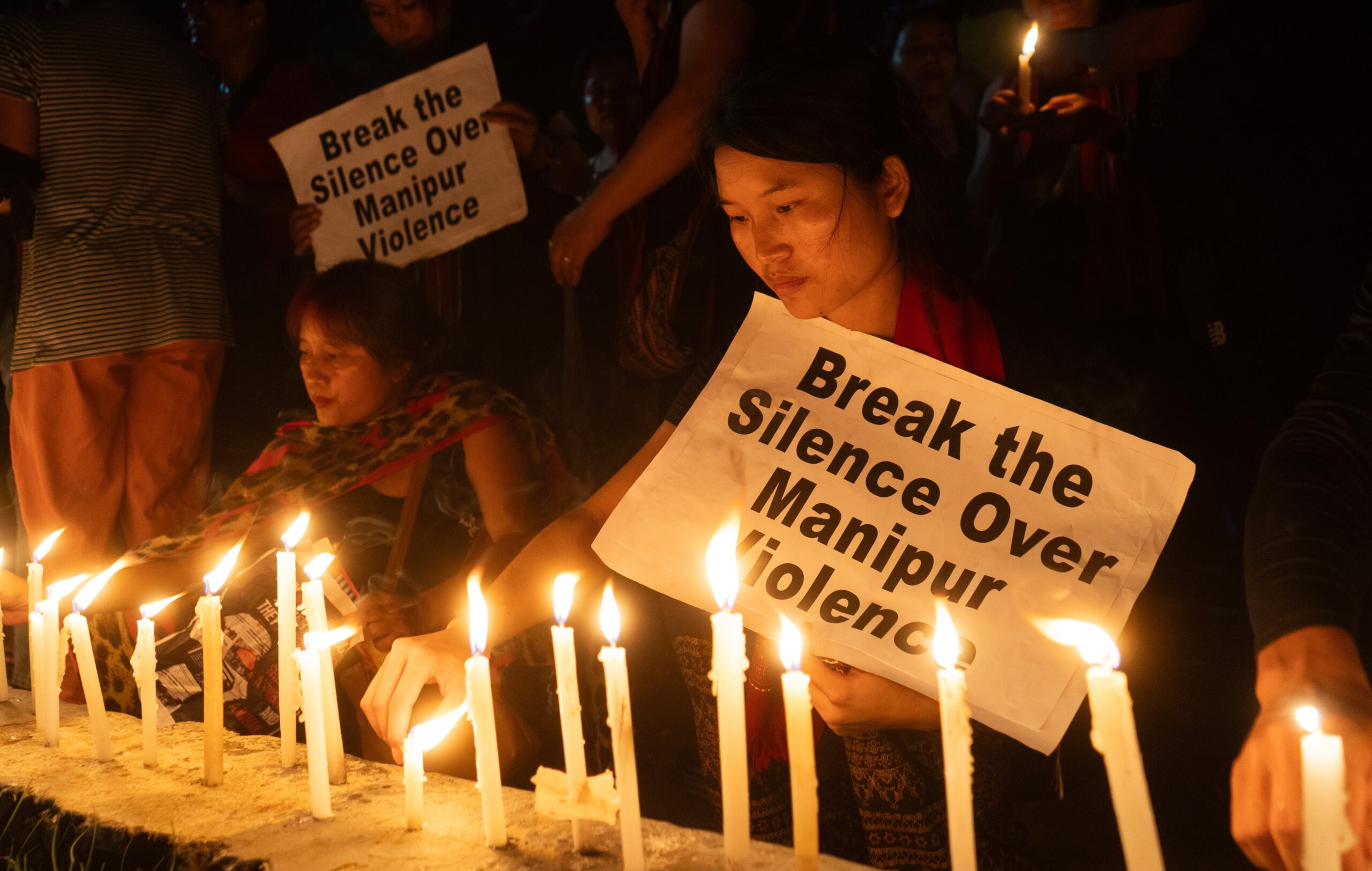
India’s Bharatiya Janata Party (BJP) presents itself as a global mediator in conflicts, yet its domestic landscape is marred by turmoil. From insurgencies in Manipur and Assam to the Naxalite dilemma, the BJP government struggles to maintain internal stability. The continued oppression of minorities, disregard for human rights, and growing authoritarianism expose deep-seated governance failures. The party’s reliance on internet shutdowns and law enforcement crackdowns exacerbates unrest rather than resolving it.
Since May 2023, Manipur has witnessed unprecedented ethnic violence between the Meitei and Kuki communities. The conflict was triggered by the High Court’s recommendation to grant Scheduled Tribe (ST) status to Meiteis, sparking protests that escalated into full-blown riots. Over 250 people have been killed, 60,000 displaced, and 360+ churches destroyed. The destruction of over 7,000 homes and the brutalization of Kuki women underscore the humanitarian crisis.
The BJP government’s response has been abysmally inadequate. Law enforcement agencies have failed to restore order, prompting an ally to withdraw support from the state government. The lack of intervention by Prime Minister Narendra Modi, who has not visited the region in two years, signals utter disregard for the crisis. This neglect has fueled further unrest, with the discovery of decomposed bodies triggering violent attacks on lawmakers’ properties. The BJP’s silence is in stark contrast to its active suppression of dissent. Internet shutdowns, curfews, and combing operations targeting Kuki Christians reveal a systematic crackdown under Home Minister Amit Shah’s directives. The assault on minority communities and BJP’s failure to deliver justice highlight the party’s prioritization of ideological supremacy over governance.
India’s long-standing Naxalite issue remains unresolved as the government prioritizes military solutions over socio-economic reforms. The BJP’s approach revolves around land seizures, heavy militarization, and extrajudicial killings. Over 75 Naxalites have been killed recently, yet the core grievances—land rights, employment, and promised reforms—remain unaddressed. The government’s failure to implement developmental measures in tribal areas has only strengthened the insurgency. BJP’s strategy of suppressing Naxalite concerns through force instead of fulfilling promised reforms exposes its lack of commitment to resolving the conflict. This hardline approach risks further radicalization, prolonging the insurgency rather than dismantling it.
Separatist sentiments in Assam and Nagaland are resurging due to BJP’s failure to honor the 2015 Framework Agreement with Naga insurgents. The government’s unwillingness to acknowledge the political nature of Naga demands has reignited armed resistance. The Naga leadership rejects India’s claim that their movement is an internal issue, advocating for third-party intervention. This failure reflects BJP’s broader issue of ignoring political solutions in favor of military suppression. Rather than engaging with separatist leaders meaningfully, the government has adopted an approach of targeted assassinations and coercion. This reinforces the insurgents’ belief that peaceful negotiation with the Indian state is impossible, fueling more instability in the Northeast.
India leads the world in internet shutdowns, using them as a tool to suppress dissent. In 2023 alone, over 7,000 hours of blackouts were imposed, escalating to 5,000+ hours in early 2024. These shutdowns cost the economy an estimated $1.9 billion, affecting 59 million people and disrupting financial transactions. The BJP government justifies these blackouts as security measures, but they serve as a cover for its administrative failures. Cutting off internet access has deepened communal tensions and prevented real-time reporting of government excesses. This digital authoritarianism exposes India’s cybersecurity weaknesses while damaging its democratic credentials globally.
Under the BJP’s rule, Hindutva extremism has been institutionalized, systematically targeting minorities. In early 2024, there were over 160 documented attacks on Christians, including 47 in Chhattisgarh alone. The lynching of minorities and rising hate crimes against Muslims signal a dangerous trajectory. The BJP invokes Ambedkar’s name while contradicting his principles. Home Minister Amit Shah’s derogatory remarks against Ambedkar reflect the party’s hypocrisy. Policies like the Uniform Civil Code (UCC) and the Citizenship Amendment Act (CAA) disproportionately affect minorities, eroding India’s secular foundation.
International observers, including analysts like Christophe Jaffrelot and Sonia Joseph, have condemned the BJP’s role in deepening sectarian divisions. The US and global human rights organizations have been urged to intervene and hold India accountable. Calls for independent investigations into human rights abuses and diplomatic pressure on New Delhi are growing. India’s democracy is crumbling under BJP’s governance. Suppression of free speech, weaponization of law enforcement, and persecution of minorities paint a grim picture.
The BJP’s governance crisis, from Manipur’s ethnic violence to the Naxalite insurgency and Assam’s separatist resurgence, reveals a failing internal security strategy. Instead of addressing core grievances, the government resorts to repression and propaganda. Internet shutdowns, religious persecution, and Hindutva-driven policies signal an alarming democratic backslide. As the Modi government attempts to position itself as a global power broker, it cannot ignore the fires burning at home. Regional instability, growing insurgencies, and unchecked extremism threaten India’s internal cohesion. If the global community fails to act, the world’s largest democracy may continue its descent into authoritarian rule.
